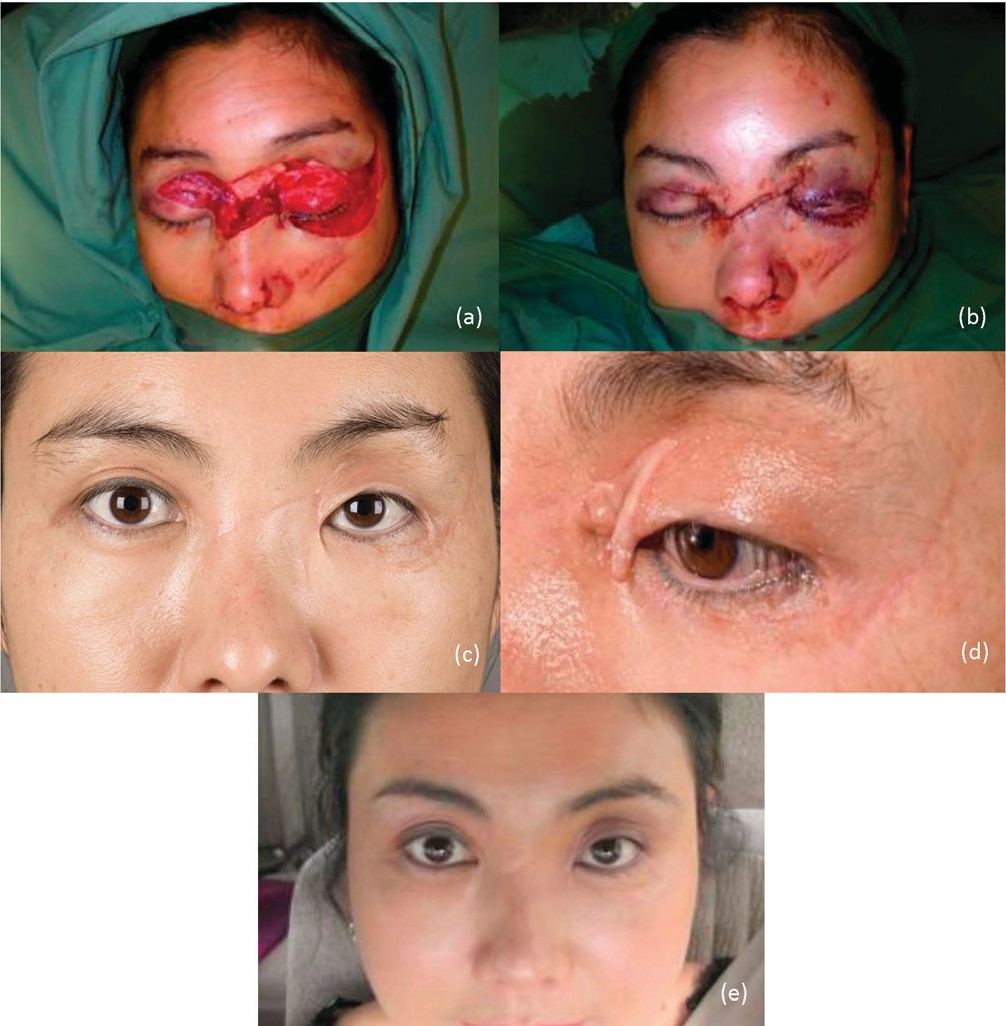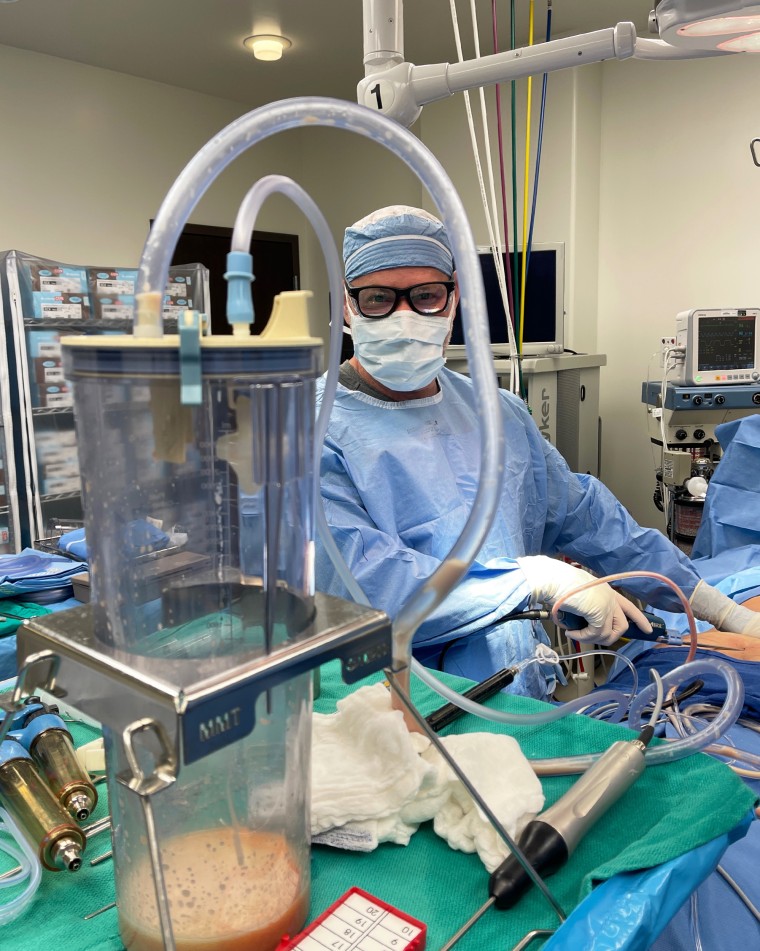Investigating the Emotional and Social Variables That Drive Individuals to Think About Cosmetic Surgery as a way of Renovation
The choice to go after plastic surgery typically extends beyond plain appearances, linking with social and mental dynamics that merit thorough exam. Variables such as self-esteem, pervasive social elegance standards, and the prevalent impact of social media sites converge to form private inspirations for surgical improvement. As these impacts end up being increasingly famous, comprehending the underlying psychological and social contexts is vital. What continues to be to be explored is the extensive impact these variables have not only on individual identity yet likewise on more comprehensive societal standards and values bordering charm and approval.
The Function of Self-worth
Self-esteem substantially affects an individual's decision to pursue cosmetic surgical treatment. People with reduced self-esteem commonly regard themselves in a negative light, causing sensations of insufficiency regarding their physical appearance. This negative self-perception can drive them to seek surgical interventions as a technique of boosting their self-image. The need for improvement in one's appearance is frequently linked to a belief that such modifications will raise their general self-respect and self-confidence.

Ultimately, the role of self-esteem in the decision-making process regarding cosmetic surgical treatment highlights the complicated interplay between body photo, individual contentment, and mental health. Comprehending this connection is vital for medical care specialists to make certain that individuals are making notified decisions rooted in realistic assumptions and psychological wellness.
Societal Charm Specifications
Influenced by prevalent media representations and cultural narratives, social beauty requirements play a vital function fit individuals' perceptions of their own bodies. These standards are frequently defined by an idealized form of elegance that highlights attributes such as slimness, youthful vigor, and balance. As these suitables are perpetuated with various channels, consisting of television, advertising and marketing, and film, individuals often internalize these messages, leading to discontentment with their all-natural appearance.
The ramifications of these social standards extend past visual choices; they can affect self-confidence, psychological health and wellness, and social connections. People that regard themselves as disappointing these requirements may experience feelings of insufficiency, motivating a desire for plastic surgery as a way of attaining social authorization. This search is usually sustained by the belief that adapting these perfects will enhance not just physical appearance yet likewise social standing and personal fulfillment.

Influence of Social Network
The influence of social beauty standards is additional magnified by the rise of social media systems, where curated photos and idyllic depictions of appeal are common. Users are constantly revealed to filteringed system and edited photographs, which frequently portray unattainable physical features. This direct exposure grows a society of comparison, leading people to analyze their very own look against these typically impractical standards.
Social media influencers and celebrities regularly advertise aesthetic treatments, stabilizing the concept that medical improvements are a feasible means for attaining societal perfects (plastic surgery rancho cucamonga). The presence of these improvements can develop an understanding that undertaking cosmetic surgical treatment is a conventional technique, consequently influencing individuals to think about similar interventions as a path to boosted self-esteem and social approval
Additionally, the interactive nature of social media permits prompt feedback with go sort and remarks, further enhancing the need to satisfy preferred elegance criteria. Such interactions can worsen sensations of insufficiency and drive individuals towards cosmetic surgery as a means of getting validation. Inevitably, social media plays an essential function in shaping understandings of charm, which significantly impacts the decision-making procedures bordering cosmetic surgical procedure.

Social Viewpoints on Appearance
Across different cultures, perceptions of appearance are deeply rooted in historic, social, and financial contexts, forming people' views on beauty and desirability. In lots of societies, look works as a significant marker of identification, influencing social standing, professional opportunities, and personal partnerships. As an example, in some societies, light skin is typically connected with riches and opportunity, while others might glorify darker skin tones as icons of toughness and authenticity.
Moreover, typical appeal standards are typically continued via cultural stories, media depictions, and household affects, causing varying suitables throughout different regions (plastic surgery rancho cucamonga). In Western cultures, the emphasis on young people and physical fitness usually drives individuals toward cosmetic improvement, while in certain Eastern cultures, even more subtle modifications aligned with traditional aesthetic appeals may be favored
Globalization and the expansion of digital media have further complicated these dynamics, creating a hybridization of charm perfects that goes beyond geographical boundaries. As people increasingly navigate these social narratives, the pressure to comply with details appearance requirements can cause the desire for cosmetic surgical treatment, reflecting a complex interaction of social values and individual desires. Understanding these cultural point of views is vital in dealing with the motivations behind plastic surgery considerations.
Psychological Impacts of Plastic Surgery
Several people seeking plastic surgery report experiencing profound psychological effects that can considerably alter their self-perception and emotional health - plastic surgery rancho cucamonga. The desire for physical improvement usually comes from underlying problems such as reduced self-worth, body dysmorphic disorder, or societal stress pertaining to charm requirements. For some, the immediate post-operative phase can bring about a temporary boost in self-esteem and contentment with their appearance, cultivating a sense of empowerment
Nonetheless, these positive sensations may not be sustaining. Research shows that while some clients experience improved self-confidence, others might encounter increased anxiousness or depression if their expectations are not fulfilled. This disparity can develop from impractical suitables bolstered by media representation and social stories bordering elegance.
Moreover, the emotional ramifications of plastic surgery extend beyond the person. Relationships with friends and family may be stressed as social dynamics change, bring about sensations of seclusion or alienation. Inevitably, the emotional influences of cosmetic surgery are intricate and multifaceted, calling for careful factor to consider by both prospective people and doctor to ensure informed decision-making and reasonable assumptions.
Verdict
To conclude, the choice to pursue plastic surgery is dramatically influenced by a combination of self-esteem problems, social beauty criteria, wikipedia reference and social perspectives on look. The pervasive reach of social networks additionally aggravates these pressures, promoting unrealistic ideals that individuals frequently strive to acquire. Comprehending these mental and social aspects is essential for resolving the inspirations behind cosmetic surgical treatment, highlighting the demand for a much more nuanced discussion surrounding elegance and self-acceptance in modern culture.
The decision to pursue cosmetic surgery usually expands past plain aesthetic appeals, intertwining with social and mental characteristics that merit detailed assessment. Eventually, social media plays a pivotal function in shaping understandings of charm, which substantially affects the decision-making procedures bordering cosmetic surgical treatment.
As people significantly navigate these social stories, the pressure to conform to details Get More Information look standards can lead to the desire for cosmetic surgical procedure, reflecting an intricate interaction of social worths and personal ambitions.In verdict, the decision to seek cosmetic surgery is significantly affected by a mix of self-esteem problems, social elegance criteria, and cultural perspectives on appearance. Comprehending these social and emotional factors is important for attending to the motivations behind cosmetic surgical treatment, highlighting the need for a much more nuanced conversation surrounding elegance and self-acceptance in contemporary society.